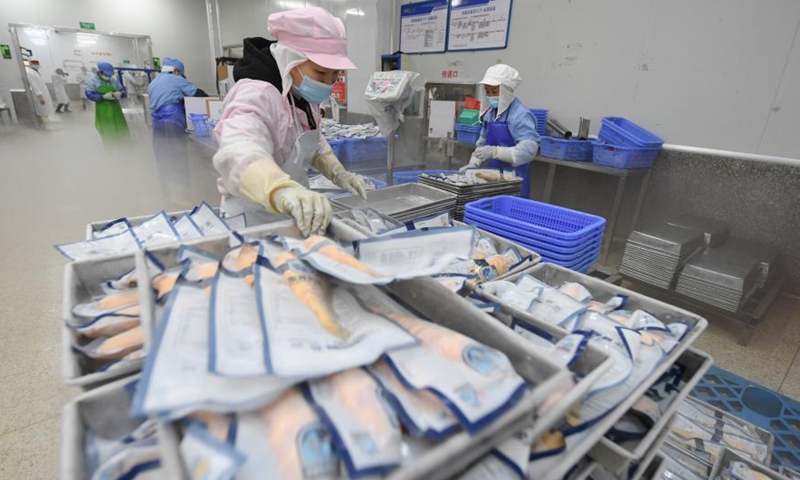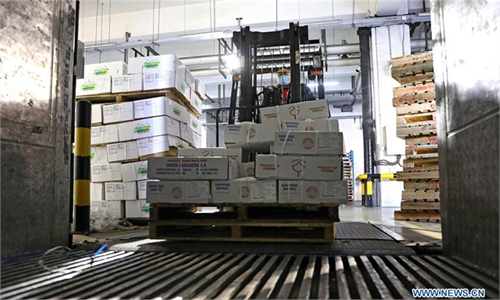
Workers pack fish to be exported to the United States in a company in Sansha Town, Xiapu County of southeast China's Fujian Province, Nov 26. Photo:Xinhua
Coronavirus can maintain a longer vitality in dark and cold environments, especially in wet and cold shipping containers that have just landed, which will increase the risk of infection via unprotected contact, Zhang Wenhong, Shanghai-based infectious disease expert and leader of Shanghai COVID-19 control group said Thursday on China's Twitter-like Sina Weibo.
Therefore, apart from the cold-chain logistics, Kashi in Xinjiang, Manzhouli in Inner Mongolia and Shanghai, three Chinese cities that reported confirmed COVID-19 cases recently, need to step up disinfection and sterilization on non-cold-chain logistics in the winter, Zhang said.
As the virus can be inactivated quickly in a warehouse with strong light and a dry environment, handling the products under these lighting conditions and in a space with good ventilation before transferring is also recommended to lower the risk of infection.
Zhang noted that Shanghai now provides free COVID-19 vaccination for employees handling imported goods on a voluntary basis, to reduce the transmission of coronavirus via logistics.
Epidemic control measures on inbound travelers and goods are both important to prevent a winter outbreak. Wu Zunyou, chief epidemiologist at the Chinese Center for Disease Control and Prevention (CDD), said on Thursday that the outbreaks in Kashi and Shanghai both started with containers from international freight.
All freight in the winter has become a type of cold-chain storage as winter approaches, making it a potential source of COVID-19, Wu said.
Moreover, disinfection in low temperatures and freezing environments has now become a new challenge in combatting COVID-19, as low temperatures can significantly "play down" the effectiveness of disinfectants or sanitization approaches, and sometimes even makes common approaches completely ineffective, Zhang Liubo, chief expert on disinfection from the Chinese CDC, said on Wednesday.

